Capacity Building & Digital Literacy
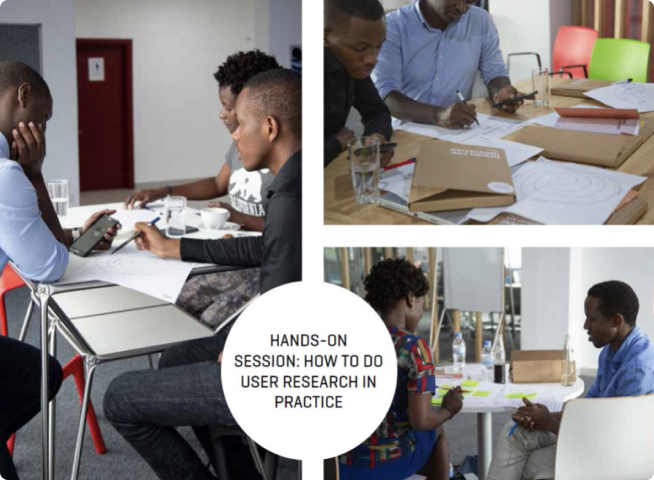
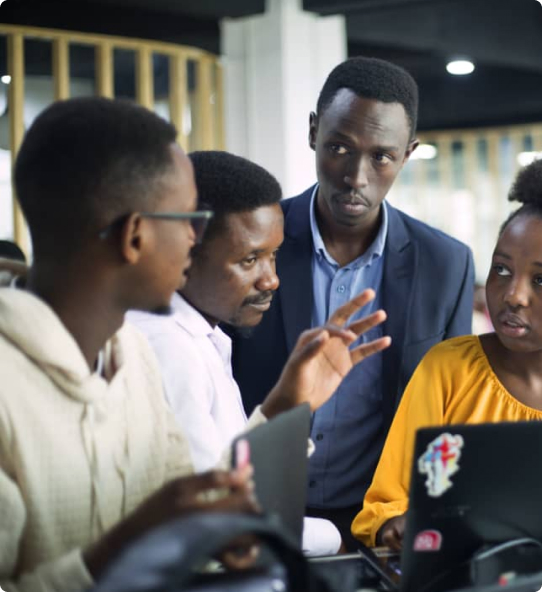
Programs
The Digital Ambassadors Program is an initiative led by the Rwandan Ministry of ICT and Innovation aiming to increase the number of digitally literate citizens and their use of e-government and e-business services. The Digital Ambassadors manage Services Access Points in all 30 districts in Rwanda and offer digital literacy skills to citizens.
Through a competitive application process, 93 Digital Ambassadors were selected to go through a training program from 14th December 2020 to 12th February 2021. During this period, they received support enabling them to turn their ideas into sustainable businesses.
The support from MINICT was critical to equip the Digital Ambassadors with what essentially served as a start-up kit of assets as well as an enabling environment to run their digital business:
I am Advanced Heading
Access to Resources
such as laptops, internet, office space and a fully equipped training room
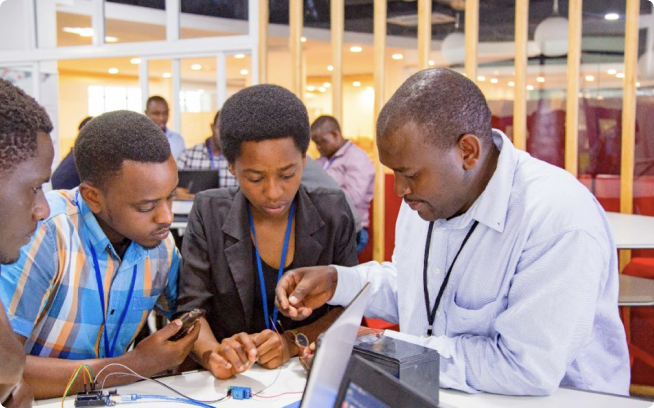
Training the next IoT-Innovators of Rwanda
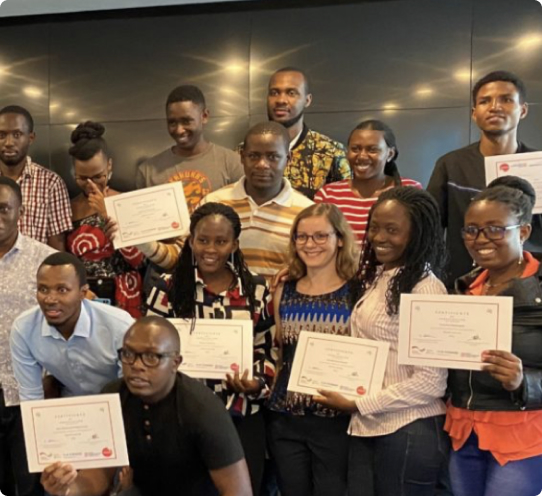
Enabling Rwandan Communities to solve Real World Challenges through Machine Learning Trainings
In order to sustainably transform Rwanda into a digital and knowledge society, the public sector needs the capability to strategize and implement ICT projects in the country.
For this purpose, the DigiCenter has facilitated training and on-the-job coaching to members of MINICT, RISA, NIRDA, RDB and other public actors on e.g. project management, code & design and system architecture. One of the main goals of these trainings was to strengthen the capacities of the public sector to realize the Smart Rwanda Masterplan. The DigiCenter recently assessed the impact of the trainings provided with 70% of the participants stating to have improved or greatly improved to implement the Smart Rwanda Masterplan.
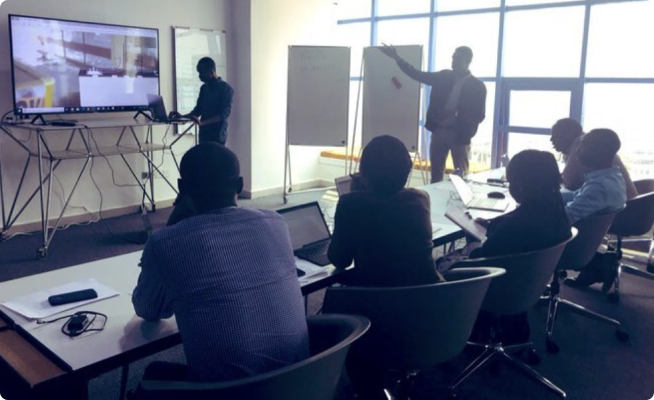

The AI Fellowship program aims to bridge the gap between academia and the private sector when it comes to AI skills.
In partnership with the Technical University of Chemnitz in Germany and Leapr Labs, the DigiCenter is currently supporting 15 fellows through a 2-step process. First, the fellows undergo a 3-months intensive training to acquire AI-related skills. In a second step, the fellows are matched with a private sector or government institution, where they will practically apply their skills on a specific AI project selected by the institution.
Communities bring stakeholders from both public and private institutions together and encourage Rwandans interested in the above topics to innovate solutions to the existing problems.
Got a challenge?
Call us: +250 785 151 218 or
Email: dtc-rwanda@giz.de

